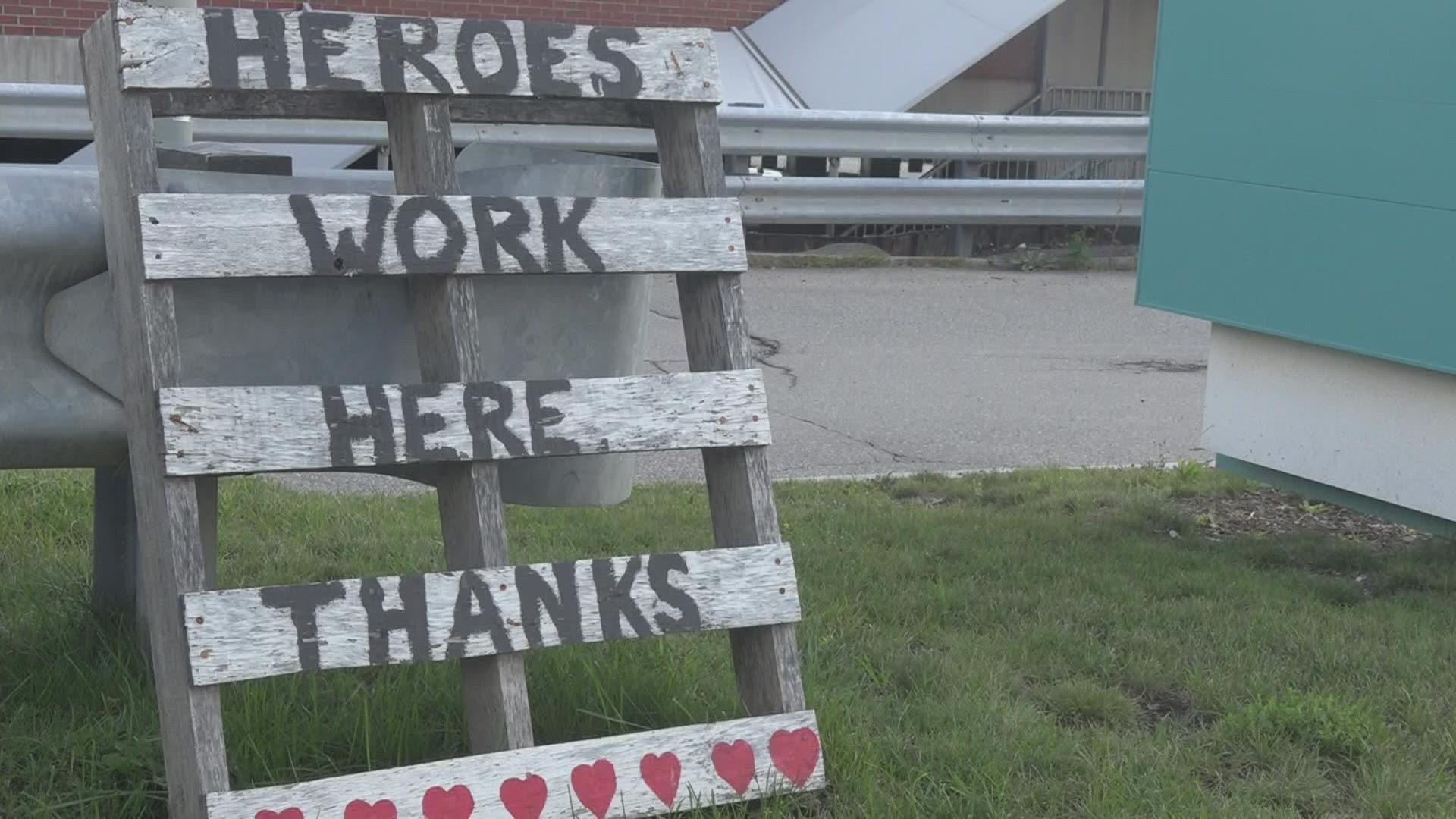MAINE, Maine — Labor Day is an opportunity to honor and celebrate workers and this year, frontline workers, in particular, deserve recognition.
Chris Laird is associate vice president for patient care services at Northern Light Eastern Maine Medical Center. Laird said the Bangor hospital currently has 42 COVID-19 patients, with 16 of them in the intensive care unit.
"The delta variant is definitely increasing the acuity of our patients as well as how quickly we are getting them," Laird said. "Our positivity rate has gone up. They are definitely much sicker as well."
More than 18 months since the United States saw its first coronavirus case, the fatigue is real for health care workers like Laird.
"Knowing that a lot of my co-workers, a lot of my staff, we are getting very tired and from that standpoint, it's important to recognize those healthcare providers because we are always on, we are available 24/7 to care for families and loved ones," said Laird.
Laird said nurses, doctors, and other hospital personnel will be doing their job and taking care of their patients no matter the day, time, or holiday.
"The expectation is that we are here, we are always on and we are always available to care for our patients," he said.
The hospital was down to almost no COVID-19 patients several months ago, but the numbers are back up.
"The challenges are the amount of patients that we have, as well as the staff," he said. "It's working short-staffed at times and being able to support the department appropriately with what's needed."
People got comfortable and thought this pandemic was almost gone, he said, but now "we are worse now than we were in the midst of the first wave of COVID."
Labor Day honors all the contributions workers make to keep our economy running.
"[F]ar too often too many workers went into workplaces that were not safe. They went in without the protective equipment they needed," said Matt Schlobohm, executive director of the Maine AFL-CIO.
The AFL-CIO is a federation of more than 160 labor unions representing about 400,000 workers in Maine.
Schlobohm said everyone deserves good benefits, decent wages, and safe working conditions ... no matter the job.
"All throughout Maine in this pandemic, all throughout the country, we have seen workers come together to demand better treatment and to say, 'You can't call us essential on the one hand and then treat us as disposable in the next moment,'" he said. "I think we are seeing workers demand that they be treated fairly on the job and standing up together.
Schlobohm said Maine unions are gaining more members.
According to data released earlier this year by the U.S. Bureau of Labor Statistics, the percentage of union members in Maine rose from about 12% in 2019 to 15% in 2020. The report also finds that nearly 17% of Maine workers in 2020 were represented by unions — an increase of 3% from 2019.
Overall in Maine, there are roughly 82,000 union members.
The five largest unions are:
- Maine Education Association – 24,000 members
Representing teachers and school support staff as well as other workers
- Maine Service Employees Association (SEIU 1989) – 13,000 workers
Representing workers in state government, other public sector employers, Preble Street, Planned Parenthood, and many other workplaces
- Machinists union – 6,000 members
Representing workers at Bath Iron Works, Portsmouth Naval Shipyard, paper mills, manufacturing facilities, and numerous other workplaces
- Construction trades unions – 5,000 members
Representing construction trades workers in a number of skilled trades including electricians, ironworkers, laborers, plumbers, pipefitters, and operating engineers
- Maine State Nurses Association, National Nurses United – 4,000 members
Representing nurses at various hospitals in Maine including Maine Medical Center, Northern Light (formerly EMMC), and hospitals in Calais, MDI, Ellsworth, Machias, Millinocket, and a number of others
"Workers have fundamentally recognized that they need to ban together to have a voice on the job," said Schlobohm. "If you are an individual worker in a massive warehouse trying to improve your safety conditions, you have very little power and ability to change your working conditions. If you come together in a union with all of your co-workers and say to the company, 'We need safe workplaces we need decent wages,' you have much more power."

